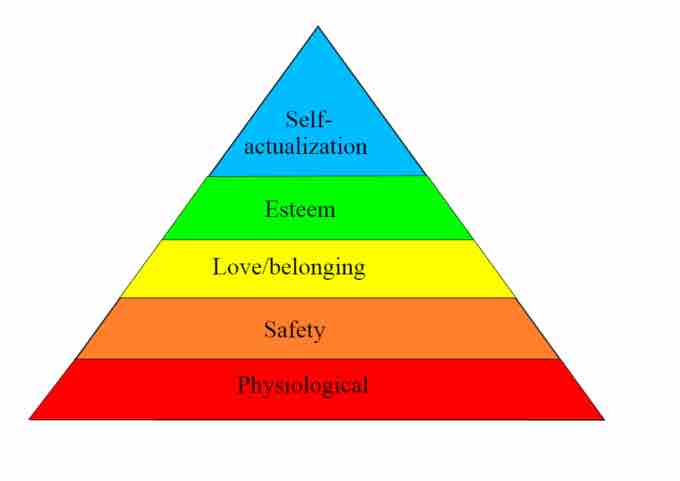Employee motivation is a complex concept, and what is effective for one employee may or may not be effective for another. However, it has been observed that many employees respond positively to increases in responsibility and accountability from a motivational perspective. Employee participation, intrinsic rewards, Locke's goal theory, and Maslow's Hierarchy of Needs are all useful perspectives in understanding why employee responsibility correlates positively with motivation.
Why Responsibility Motivates
As the concept of responsibility and its application to motivation is qualitative, it is useful to explore a variety of motivational theories relevant to the impact of responsibility.
Employee Participation
Employees recognize that responsibility and accountability are displays of trust, and an increase in employee participation in strategic decision-making and tactical thinking builds confidence and enables buy-in when decisions are made. Various studies of employee participation in process improvement discussions demonstrate that when employees are consulted and involved in making important operational decisions, they feel shared responsibility for the outcomes of those decisions. This shared responsibility drives positive performance, as they are now accountable not only for the execution but for the concept itself.
Maslow's Hierarchy of Needs
A commonly cited example of motivational theory, Maslow's Hierarchy of Needs essentially stipulates that fulfilling lower levels needs (such as food, hygiene, shelter, safety, etc.) is generally accomplished through salary and benefits. However, these hygiene factors don't result in higher level motivation and higher level thinking. Social affiliation, belonging, a sense of self-respect, a feeling that what one does is meaningful, accountability, and finally self-actualization are identified as the more powerful and higher level motivators. From this perspective, empowering employee responsibility fulfills critical needs in terms of self-esteem (the fourth level of the hierarchy) and, to some degree, self actualization (the fifth level).

Maslow's Hierarchy Of Needs
Maslow's Hierarchy of Needs underlines the importance of upper level motivators and the fulfillment of intrinsic needs as employees develop into roles of responsibility.
Locke's Goal Theory
Edwin A. Locke put forward the relatively simple concept that setting specific goals at the appropriate difficultly level will empower higher degrees of performance. What's interesting here is that when employees themselves are involved in the goal-setting process, when they feel responsibility for the objectives they themselves helped to determine, the level of motivation is higher. This implies that shared responsibility in goal-setting has a positive impact on overall motivation.
How to Delegate Responsibility
With this motivational theory in mind, it is a relatively safe assumption that many employees will be more motivated when given responsibility of their tasks. Managers must understand how much responsibility can be delegated to a given employee, and how that responsibility should be handed over. Making an employee accountable for a task or tactic they don't agree with, for example, could have disastrous results (as the intrinsic motivators may not be present). Managers must know how to hand off responsibility responsibly.
- What are the objectives? When providing an employee with responsibility over a project, task, or process, managers and/or leaders should clearly underline what the objectives are and how success will be determined. The employee must know not only what it is they will be working on, but what the expectations and end goals of that task will be. This should be an open discussion, where agreement and alignment is created before moving forward.
- How will the objectives be accomplished? Following this, the employee must be given a say in how this process will be approached. Employees are functional experts in the fields they are hired for, and thus will almost always have strong opinions on best practices and overall process. Managers should actively listen to how the employee suggests pursuing a given task, and provide suggestions and feedback to ensure the employee is moving in the right direction relative to the long term strategy of the organization. Agreement on "the how" is important before moving forward.
- Why this is relevant? Finally, being accountable for a process requires time and energy. Understanding why the task is critical for organizational success is critical for employee empowerment and motivation.
Once all of these concepts are agreed upon, the employee is ready to take on the responsibility for the task at hand. This managerial strategy empowers employees to grow and take responsibility for their actions, ultimately developing more leaders at the organization.